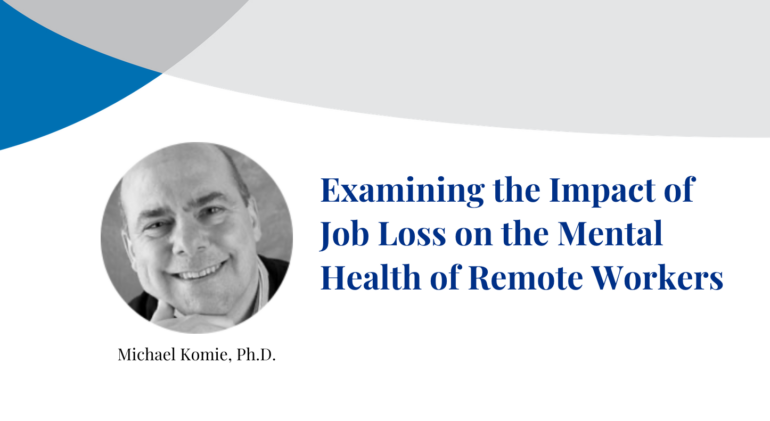With the significant increase in remote work since the COVID-19 pandemic, there is the possibility of a newly emerging public health issue. It is the impact of layoffs on workers who have been working from home.
Job loss is a very painful psychological event. It impacts economic and food security, social supports, social mobility, access to healthcare, and overall quality of life. It increases health disparities. It impacts socially marginalized populations disproportionately. It impacts workers and their families. It can also increase the digital divide as workers lose access to their connections to digitally based professional and social networks, removing tools vital for bridging the gap between jobs.
It is of crucial importance that workforce development policymakers, colleges, universities, community colleges, social welfare organizations, and religious organizations prepare to help people cope with this emerging social problem.
It is also of crucial importance that continuing education and training opportunities are immediately developed and provided to professionals in mental health fields to strengthen their ability to understand issues in job loss, job search, and the related psychological stressors that accompany them so that they can intervene effectively with their clients.
When people have been isolated at home, their jobs may be one of the few connections they have to the outside world. We need to upgrade our helping professions and educational infrastructure supports to give people the services they need to successfully navigate through the turbulence created by layoffs. Let’s rise to the challenge as a field.

